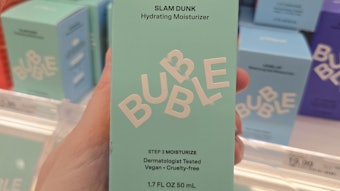
We all know “beauty sleep” is the real deal. What we don’t know is how our gut microbiome impacts it. This has been the focus of new research from Johnson & Johnson (J&J), in collaboration with Holobiome Corporation. In a recent podcast, J&J’s Stefanie Dhanda enlightened us on their findings. The following was adapted from our discussion. To learn more, listen to the full podcast.
C&T: What is known about the connection between the microbiome and sleep?
 SD: I think it’s fair to say that there’s more unknown than known at this point. We’re taking clues from other areas—mood disorders, depression and anxiety, as there’s been lot of work in these spaces—as we see correlations that lead us to believe sleep is in a similar vein. One study, for example, compared the gut microbiome of healthy individuals with those afflicted by mental illness, and distinct differences in the presence of certain bacteria and their function were observed.
SD: I think it’s fair to say that there’s more unknown than known at this point. We’re taking clues from other areas—mood disorders, depression and anxiety, as there’s been lot of work in these spaces—as we see correlations that lead us to believe sleep is in a similar vein. One study, for example, compared the gut microbiome of healthy individuals with those afflicted by mental illness, and distinct differences in the presence of certain bacteria and their function were observed.We know there is a bidirectional signaling pathway called the gut-brain axis that runs between the gut and the brain, where neurotransmitters deliver information about emotion, stress and pain. This path can potentially be acted upon. For example, some individuals take melatonin, which after ingestion, signals up to the brain to help induce sleep.
C&T: What topical applications to you envision for this research?
SD: You don’t really need any clinical evidence to know when you don’t get enough sleep, your skin suffers. I think we’ve all had experiences with poor sleep making our faces look pale, puffy and dull, and giving us dark circles. Many studies have confirmed these effects clinically by counting wrinkles or red spots, or looking at reduced skin barrier function, which is usually a precursor to acne or eczema development.
There are really two approaches in this space that Johnson & Johnson is actively pursuing. One is toward direct skin improvement potentially by the skin’s microbiome; for example, by killing bad bugs or crowding them out. We have several collaborations under way in this aspect.
The other is specific to this sleep research, where we look to the gut microbiome to improve health and sleep. By doing this, we can indirectly induce other significant positive effects—repair work happens, collagen is rebuilt, etc.—like nutrition. Here, we’re looking at some sort of ingestible or beverage to improve sleep, which therefore will improve skin.










